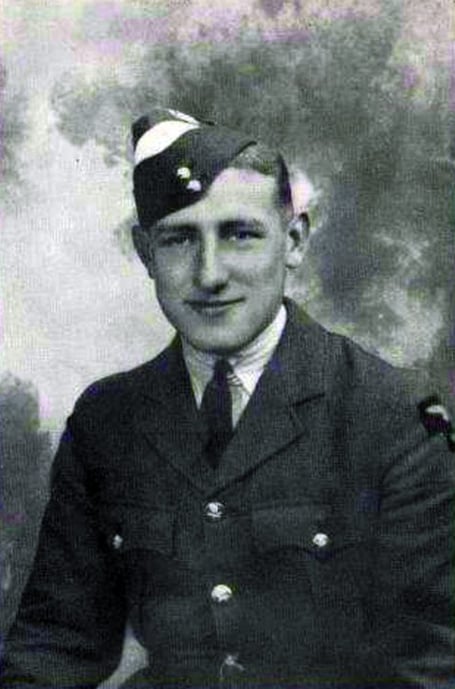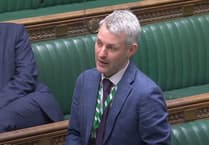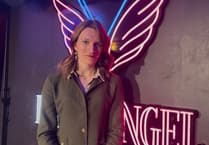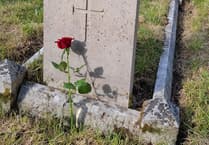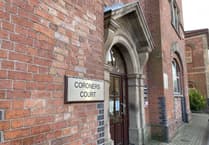A SECOND World War flight sergeant from Woking wrote about 23 bombing raids he took part in over Germany, before he was killed in an air accident in August 1942.
He was Derek Lord, who served with the Royal Air Force Volunteer Reserve. His letters containing vivid details of the raids were published in a book, The Last Train, in 1943 as a tribute to the man who was just 20 years old when he made the supreme sacrifice.
He was piloting a Defiant aircraft with Sergeant Air Gunner Arthur Owen in a mock attack when the aircraft spun out of control and crashed near Hutton Cranswick in Yorkshire. The air gunner was also killed.
In reporting his death, the News & Mail wrote: “Well known in Woking and Guildford as ‘Dick’ or ‘Shoss’ Lord, Derek was educated at the Woking County School for Boys, which he left in 1939. He was a school prefect and gained London matriculation credits. He was a member of the school cricket, rugger and football teams.”
It added that Derek volunteered for the Royal Air Force in July 1940, passing out as a sergeant pilot in 1941. He joined a bomber squadron, later transferring to another, and as captain of a Whitley aircraft “he visited many of the larger Nazi cities, including Berlin, Hamburg, Essen, Bremen, Rostock, Cologne, etc”.
A pilot officer named Derby, was quoted as saying: “He was one of the most popular men in the ’drome. He was the finest pilot I have flown with.”
The News & Mail of 19 March 1943 gave details of the forthcoming book, saying that exactly a year after he had joined the RAF Volunteer Reserve, “he flew as second pilot in a Whitley on his first operational sortie”.
The report then quoted Derek’s words about that flight: “At zero hour the first massive aircraft lumbered, with engines straining, into the night air. We were fifth off. One complete circuit of the ’drome with its twinkling lights and grey and black intermittent shadows and we set course down England!”
“There were many hours before us about which we gave no thought. It was not until our aircraft glided slowly over the English coast that my thoughts strayed from the job in hand. Then, as I looked at the white line of breaking waves, I wondered if I would see those pleasant shores again.”
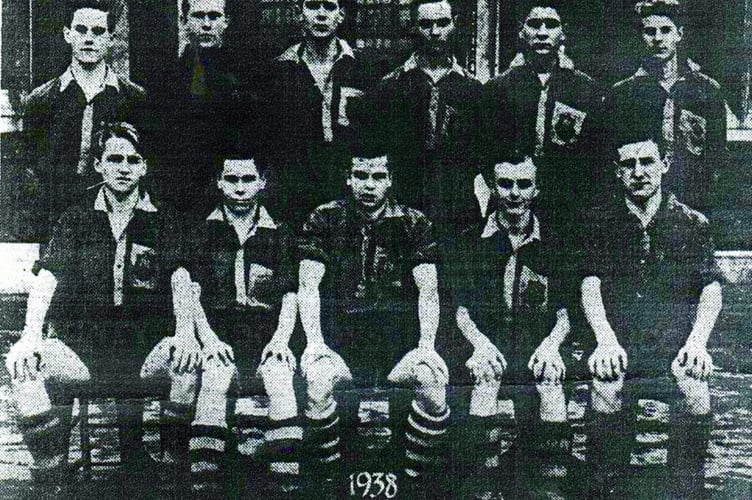
Further into the mission, Derek wrote: “I had my first taste of ‘flak’. It was a wonderful spectacle. Demoralising, yes, but at the moment harmless. Nevertheless, it could be fatal.
“We weaved through as searchlights tried to pick us up. My eyes almost popped out of my head; my heart missed a beat or two. Two rows of orange lights appeared ahead and diminished. Tracer cannon fire! A fighter?
“Struth, I began to sweat. I could feel little streams ice cold against my flesh, creeping down from under my arms.
“At last we were running up on the target. We were boxed in by shell bursts and black smoke. Shells splattered the sky, leaving a stench or cordite.
“The night air was rent with bomb flashes and sparkling flares. I felt like telling the navigator ‘Busk up and let’s get out of here’.”
Derek’s parents had moved to Burpham and he is buried in St Luke’s Churchyard, off Burpham Lane.
The Last Train has long been out of print. Thanks go to Mark Coxhead, who has uncovered details for this week’s story.
If you have some memories or old pictures relating to the Woking area, call David Rose on 01483 838960, or drop a line to the News & Mail.
David Rose is a local historian and writer who specialises in what he calls “the history within living memory” of people, places and events in the west Surrey area covering towns such as Woking and Guildford. He collects old photos and memorabilia relating to the area and the subject, and regularly gives illustrated local history talks to groups and societies. For enquiries and bookings please phone or email him at: [email protected]
